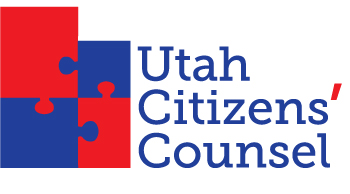UCC continues to oppose the 2023 proposed constitutional amendment that would remove the income-tax earmark for public and higher education and some social services. The Utah Education Association (UEA) also is opposing the amendment, which will be on the 2024 general election ballot for voter approval.
The State argues that it needs the flexibility to allocate funds without the limitations of the earmark. If it needs more freedom with respect to spending income tax revenues, one wonders why it keeps cutting the income tax rate (and in a way that continues to benefit wealthy Utahns). The 2024 Legislature reduced the rate to 4.55% from the previous rate of 4.65%, which was an earlier cut from Utah’s 5% flat rate. Also, why doesn’t the Legislature remove other budget earmarks as well?
Although the Utah Legislature has been enticing UEA to support the amendment—by providing substantial increases the last few years that incorporate inflation and growth in student populations—it has also created financial incentives for alternatives to public education, creating suspicion about its long-term support for public education. It doubled the amount of money (now over $82 Million) from income tax revenues that can be tapped by parents to offset the costs of educating their children in home schools and private schools, including religious schools. Over 10,000 children can now receive an $8000 annual scholarship (voucher) to help cover tuition and extracurricular expenses. This diversion of support away from public education undervalues priority needs such as class size reductions, more teacher salary increases, expanded programs for at-risk and preschool students, and more nurses and mental health counselors.
The Legislature has taken steps to enhance its ability to persuade the public to vote for the amendment. One is passage of a law that will remove the state portion of the sales tax on food (1.75% of the 3% total tax) but only if the voters approve the proposed amendment. Some would call this incentive close to holding voters hostage.
Voter understanding of proposed constitutional amendments will be significantly harmed by removal of the requirement for an “impartial analysis” by the nonpartisan Office of Legislative Research and General Counsel that “fairly describes” the language of the amendment. Instead, under SB37, the Senate President and House Speaker will now write an explanation of the amendment without a requirement for impartiality. This shift occurred on the final day of the 2024 session in what was supposedly a clean-up bill.
We also note a number of newly enacted laws that are controlling public schools in ways that encroach on the traditional authority of local school districts and the state board of education. We will be providing a longer brief in the future documenting these encroachments and providing further reasons to retain the income-tax earmark.
